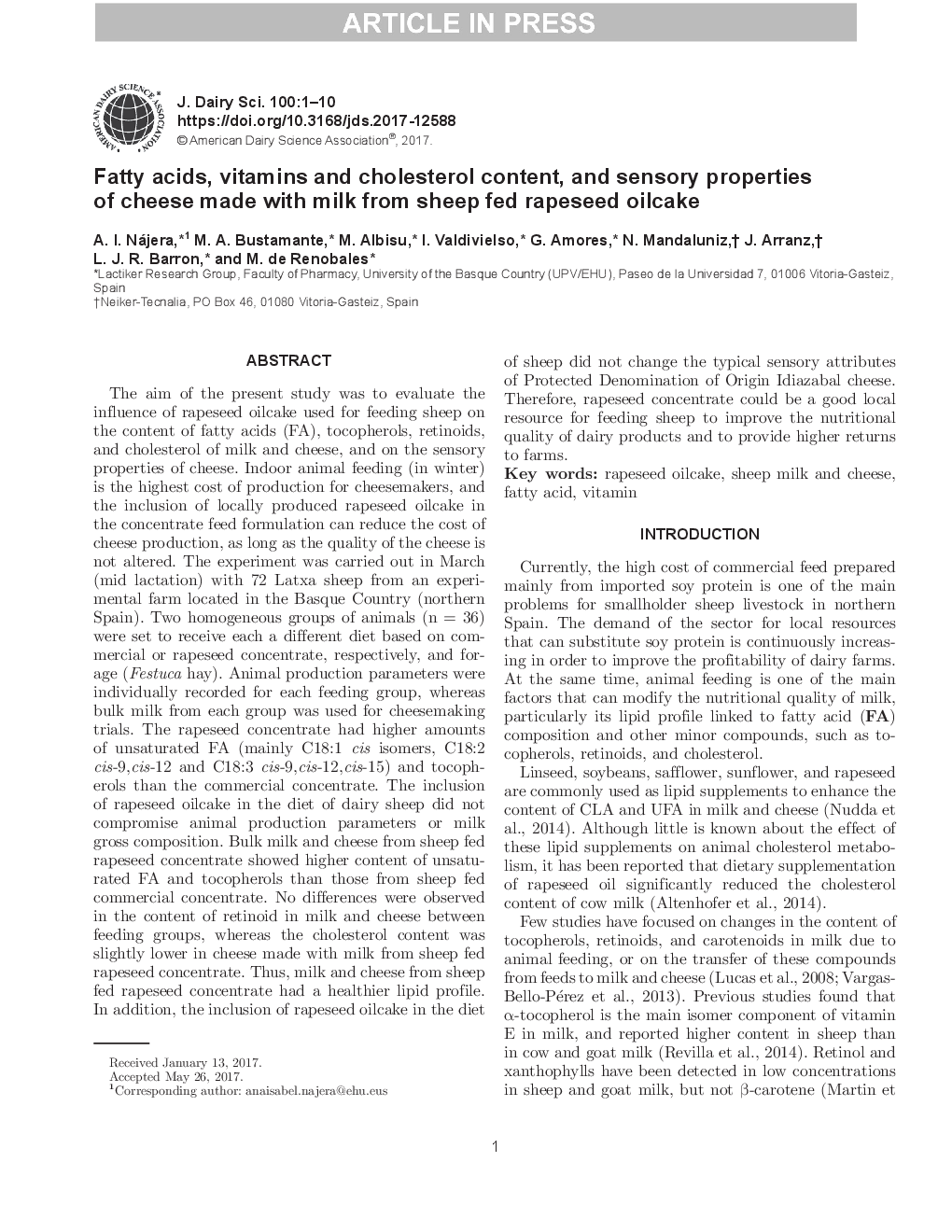ترجمه فارسی عنوان مقاله
اسیدهای چرب، ویتامین ها و میزان کلسترول، و ویژگی های حساسیت پنیر ساخته شده با شیر از گوسفند با روغن کیک کلزا
عنوان انگلیسی
Fatty acids, vitamins and cholesterol content, and sensory properties of cheese made with milk from sheep fed rapeseed oilcake
| کد مقاله | سال انتشار | تعداد صفحات مقاله انگلیسی |
|---|---|---|
| 140413 | 2017 | 10 صفحه PDF |
منبع

Publisher : Elsevier - Science Direct (الزویر - ساینس دایرکت)
Journal : Journal of Dairy Science, Volume 100, Issue 9, September 2017, Pages 6962-6971
ترجمه کلمات کلیدی
کیک روغن کلزا، شیر و پنیر گوسفند، اسید چرب، ویتامین
کلمات کلیدی انگلیسی
rapeseed oilcake; sheep milk and cheese; fatty acid; vitamin;

